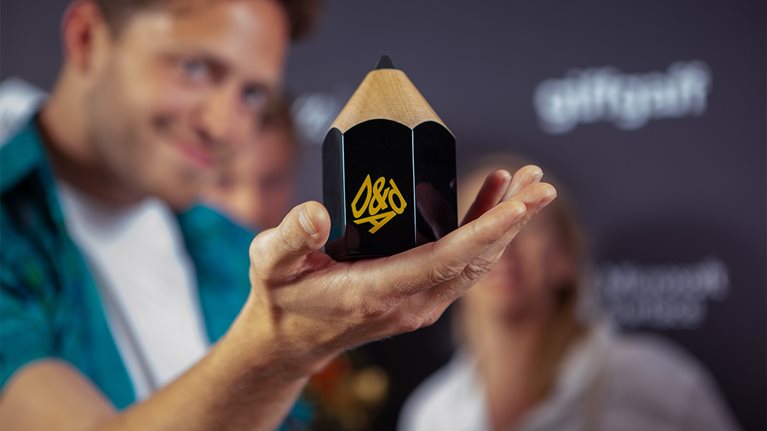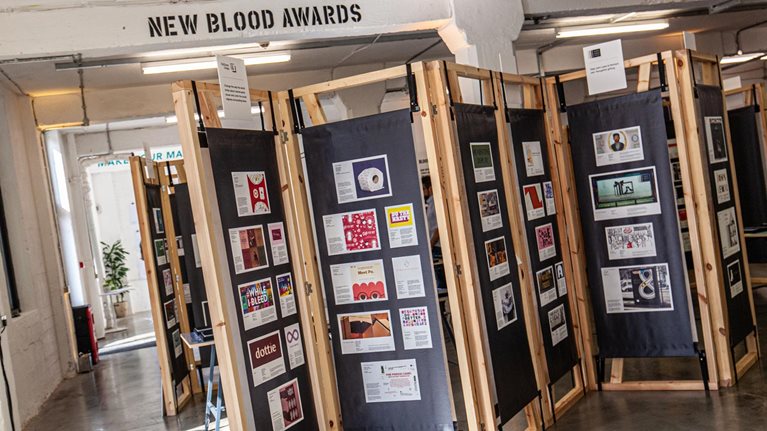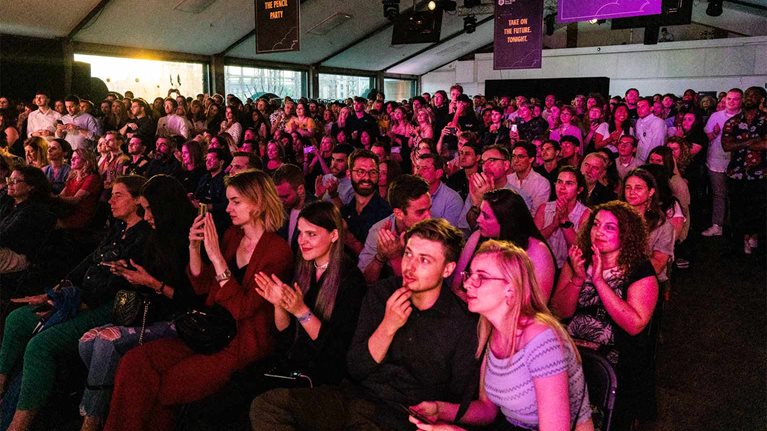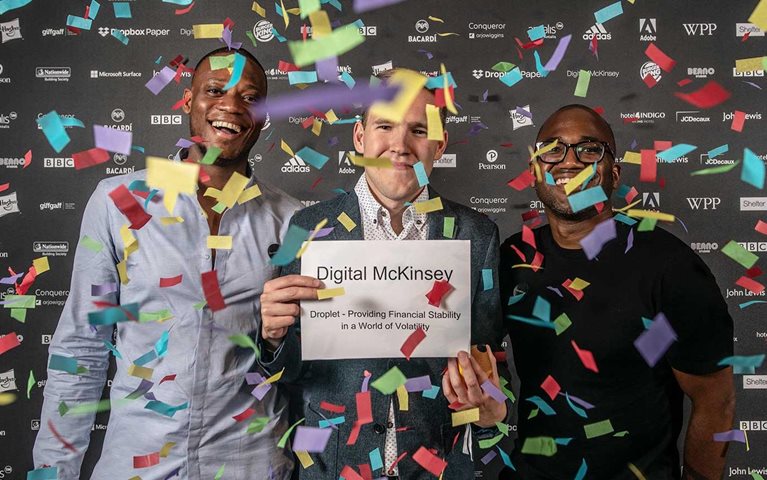Empathy is the foundation of great design, and wherever there’s a lack of one you’re unlikely to find much of the other. That’s often the case when it comes to menstruation.
Just talking about periods remains a social and cultural taboo in many parts of the world, and things like good information and affordable, effective, well-designed products are far too often hard to come by for women who need them. Our firm is helping to change that.
McKinsey Design is a sponsor of the D&AD New Blood Awards. Often called the “Oscars of the design world,” they help to identify the next generation of creative talent—both students and working designers—under the age of 24. The awards themselves are designated as “Pencils,” with four levels of achievement.
This year, we partnered with The Case For Her, a non-profit organization dedicated to improving women’s and girls’ health, and laid out a challenge: “End the stigma. Period.” It was a call for young designers to create an innovative service, product, or campaign that addresses the social stigma and practical issues related to menstruation.
They didn’t disappoint. According to Nick Whiting, a senior expert with McKinsey Design who served as a judge this year, the response was “amazing.”
“We had some 18,000 downloads from 95 countries—and ultimately 300-plus solutions,” says McKinsey senior recruiter Anett Tarnokova, who leads our partnership with D&AD.
“There was an incredible diversity of approaches from practical medical devices to daring social-media campaigns,” says Nick. “Entries focused on sexual, political, legal, and socioeconomic aspects; they addressed many different parties, from homeless women, to dads, to boyfriends, and teachers. Seeing so many eye-opening ideas from all over the world, one after the other, gave me goose bumps.”

In the end, a stunningly simple idea from three young men in the Danish School of Media and Journalism snagged the highest honor: a Black Pencil, awarded for truly groundbreaking work. It went to Pad Paper: sanitary pads wrapped on a cardboard tube, like bathroom tissue.
In some countries, including the United Kingdom and United States, sanitary pads and tampons are assessed a luxury tax. But the way that Pad Paper is packaged qualifies it as a basic necessity, thereby bypassing the tax.
“When we heard about the luxury tax on pads, we quite quickly agreed to look for a creative way to avoid it,” explained Mark Terkelsbøl, one member of the winning team. “We made Pad Paper as simple as possible, so when we told people about the tax issue, they instantly understood what the purpose of this product was. It also meant we could position it as an innovation for all period brands, rather than just as a one-brand initiative.”
In addition, two entries won Graphite Pencils for original, inspiring work. On It is a period-education card game for kids of all ages, and Everybody Bleeds is an adhesive bandage shaped like a sanitary pad designed to reduce the stigma of bleeding. A portion of Everybody Bleeds’ profits will support non-profit organizations.

Period Academy, which helps educate fathers about their daughter’s periods, won a Yellow Pencil for true creative excellence.
In addition to the competition, McKinsey Design ran four workshops with 120 students in Berlin, London, Stockholm, and Milan, linked by video conference. Based on our own design sprints, the workshops took a persona-based approach: in this case, the role of dads in menstruation.
“It was an opportunity for the students to see the topic from a specific angle and very much mirrored the way we think about and design products here at McKinsey,” says Nick. “Participants had the chance to meet experts in the overall subject—menstruation—and also design professionals to hopefully pick up some tips and tricks,” says Nick.
“The inspiration for the D&AD brief itself was drawn from research done in Nepal in 2017 by The Case For Her,” explains Anett.
As has been reported in the news, the country has some of the most negative attitudes toward menstruation worldwide. The Case For Her conducted extensive ethnographic interviews across 12 locations in Nepal with adolescent girls, their peers, family members, and teachers to better understand their experiences.

“When girls have their first periods, many of them have no idea what is happening,” points out Gaelle le Gelard, a McKinsey designer who worked with the non-profit on a pro bono basis, helping to translate the raw research data into a design framework for developing tangible solutions. “There is a lack of education on the topic because of the many taboos surrounding it; mothers often don't dare to speak to daughters, and daughters fear the stigmas.”
“Any solution for managing menstruation had to be thought through as part of an ecosystem rather than one killer idea,” Gaelle explains, “and work across different locations, family situations, and a range of audiences.”
Gerda Larsson is the co-founder and managing director of The Case For Her. “It has been tremendously gratifying,” she says, “to see our efforts grow from a single research initiative in Nepal to partner with McKinsey Design on a high-profile competition that amplified our message across the globe and drew 300-plus solutions.”
